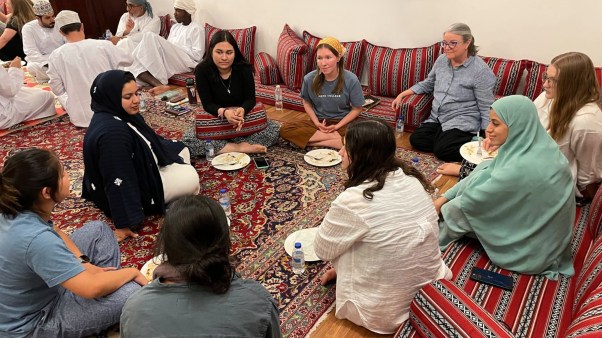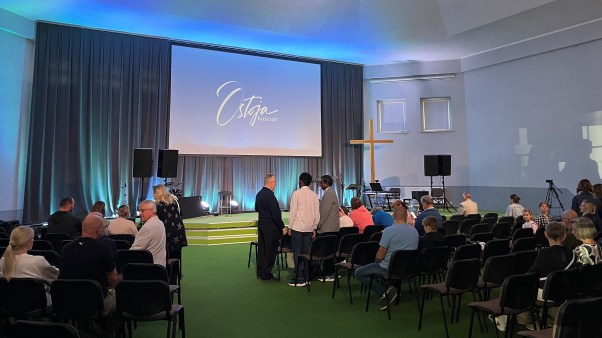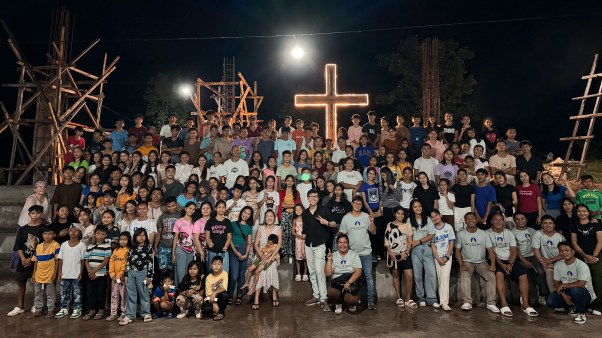"IT is difficult to overstate the significance of parachurch organizations in contemporary American evangelicalism." So writes historian John G. Turner in Bill Bright and Campus Crusade for Christ: The Renewal of Evangelicalism in Postwar America. That's due in part to the size and scope of such organizations. Evangelical Christians donate billions of dollars annually toward humanitarian, political, and evangelistic causes, from the Billy Graham Evangelistic Association (BGEA) to Youth with a Mission to Young Life to Prison Fellowship to the Evangelical Environmental Network—the list goes on and on.
The extraordinary anxiety—and relief—over World Vision's (WV) twin policy statements about hiring married gay men and women signaled again the centrality of parachurches to evangelical life. In fact, the incident suggests that parachurches do not merely come alongside the church in ministry, but also lead it in crucial ways.
Parachurches have played a long and important role in our movement, beginning with the American Board of Commissioners for Foreign Missions in 1810. But since World War II, evangelicalism has more or less been defined by parachurches like BGEA, InterVarsity Christian Fellowship, Compassion, and WV. Michael Lindsay, in Faith in the Halls of Power, argues that cosmopolitan evangelicals—prominent leaders in a variety of fields—"are more active in parachurch groups than in local congregations." The most gifted and ambitious influencers in our movement serve and take their cues from the parachurch. In short, the parachurch has become a de facto leader in contemporary evangelicalism.
It's still very much true that the parachurch comes alongside the local church to help its ministry. World Relief, for example, doesn't replace local churches' calling to tangibly show compassion to the poor. But World Relief gives those churches a place to send people and resources so that the poor can be served.
But the parachurch leads the church in important ways. Most churches, especially those in denominations, are called to a variety of ministries. Parachurches can pursue laser-like focus on core issues. And they can ignore other issues that the local church cannot. International Justice Mission, for example, doesn't have to worry about helping parents raise their children in the faith or teaching people how to tithe.
Parachurches also enjoy a focused theology and ethics. In mainline denominations (to which some CT editors belong), one finds diverse views on Scripture: the inerrant Word of God, merely a historic document, and everything in between. Or take the issue at hand in the WV controversy. In some denominations, gay people can be married and serve in church leadership.
Many evangelicals believe the faith should be more focused—in ways that speak to the truth and splendor of the gospel. Thus they are committed to parachurch institutions, because they can do just that. As Andrew Walker wrote for First Things, "In American evangelicalism, you can't believe in anything you want and call yourself an evangelical." There's much greater latitude in mainline Protestantism. "That's [what] 'professional dissidents' . . . want evangelicalism to become," continues Walker. "But that only leads to eternal pottage."
This is one large reason we evangelical Christians were so discouraged when WV announced its decision to hire married gays—and why we were heartened when WV reversed itself. As president Rich Stearns explained to CT, WV maintains "certain beliefs that are . . . core to our Trinitarian faith" such as "the authority of Scripture" and "marriage as an institution ordained by God between a man and a woman—those are age-old and fundamental Christian beliefs. We cannot defer on things that are that central to the faith."
Those of us who support or work for parachurch organizations would do well to remember, then, that the parachurch is not first and foremost designed to foster church unity by sacrificing theology or ethics for the sake of a narrowly defined mission. Instead, at their best, parachurch organizations keep alive focused, integrated visions of theology, ethics, and mission. That's the way parachurches can lead the church.
It's not that mainline Christianity is utterly corrupt and evangelical Christianity is the only true and perfect form of faith. But evangelical Christianity too has been mightily used by God and brings extraordinary gifts to the broader church. When our parachurches faithfully maintain the unique beliefs and practices that have come to define the evangelical movement, that's when we have something special to contribute to the body of Christ.
Mark Galli is CT editor.










